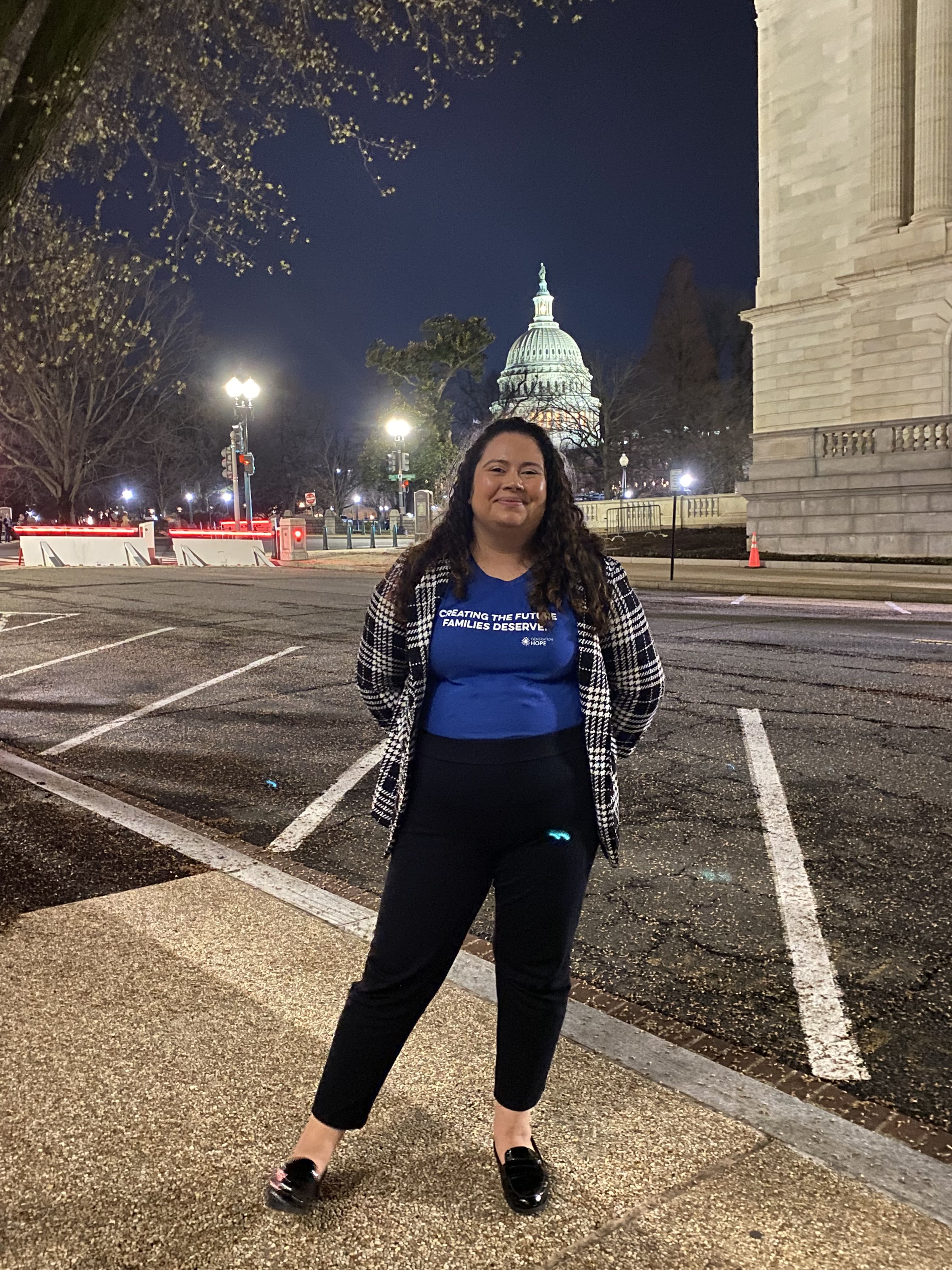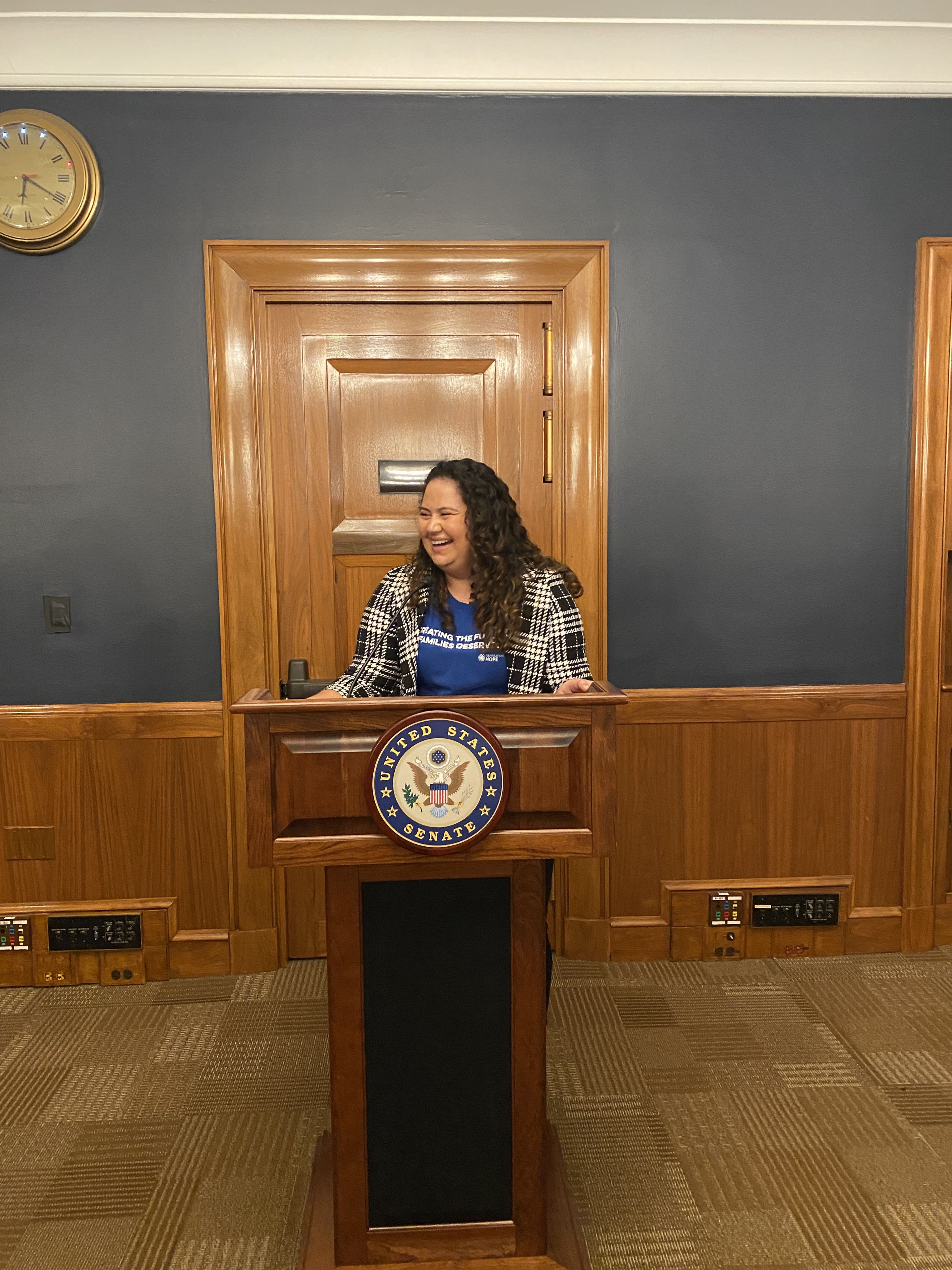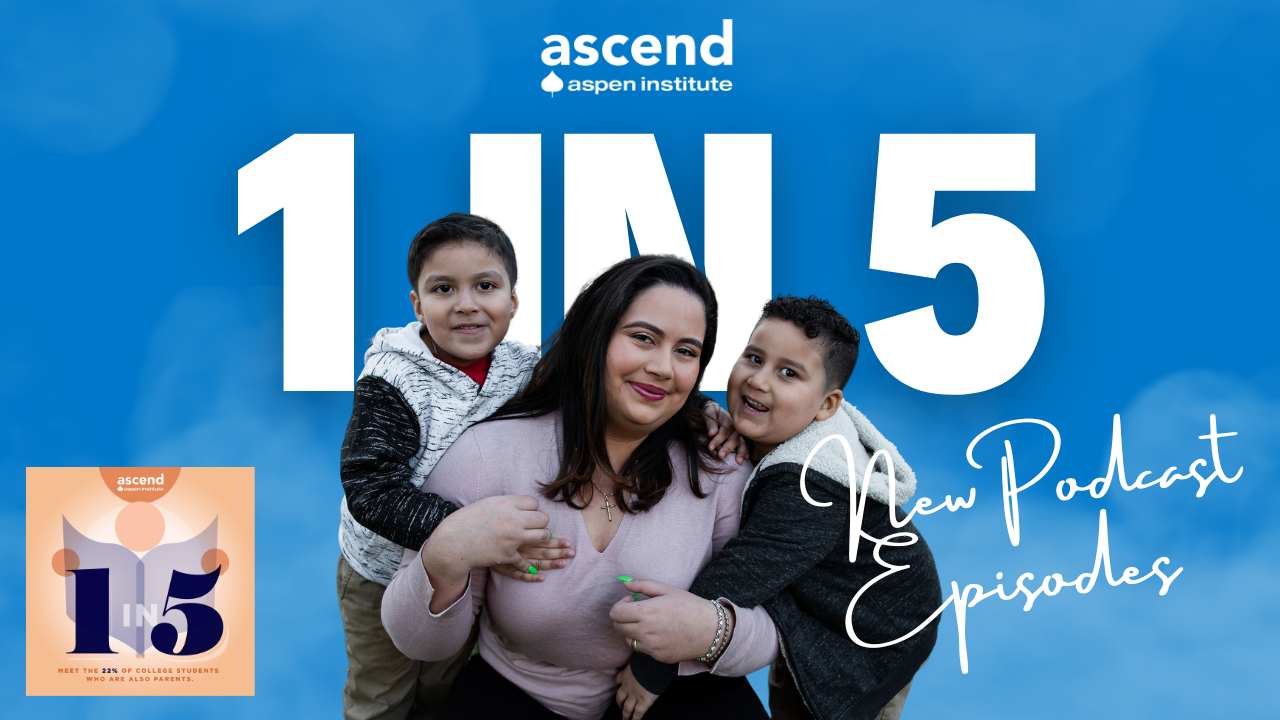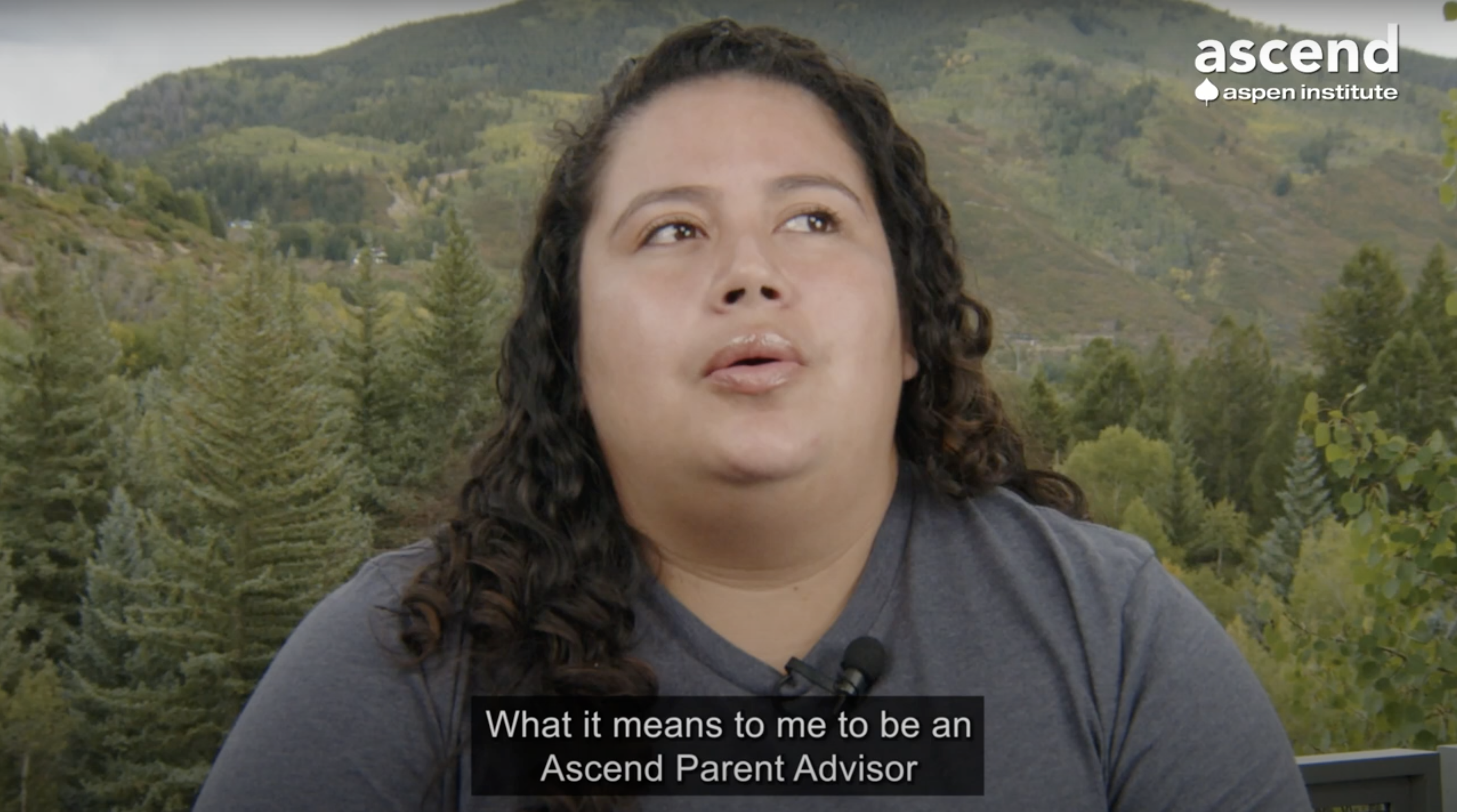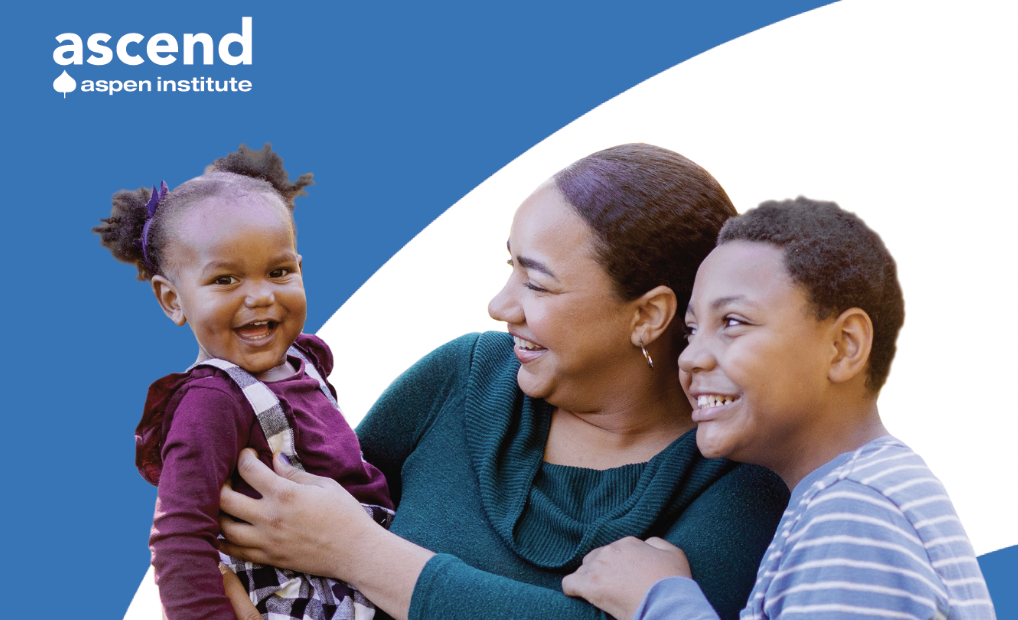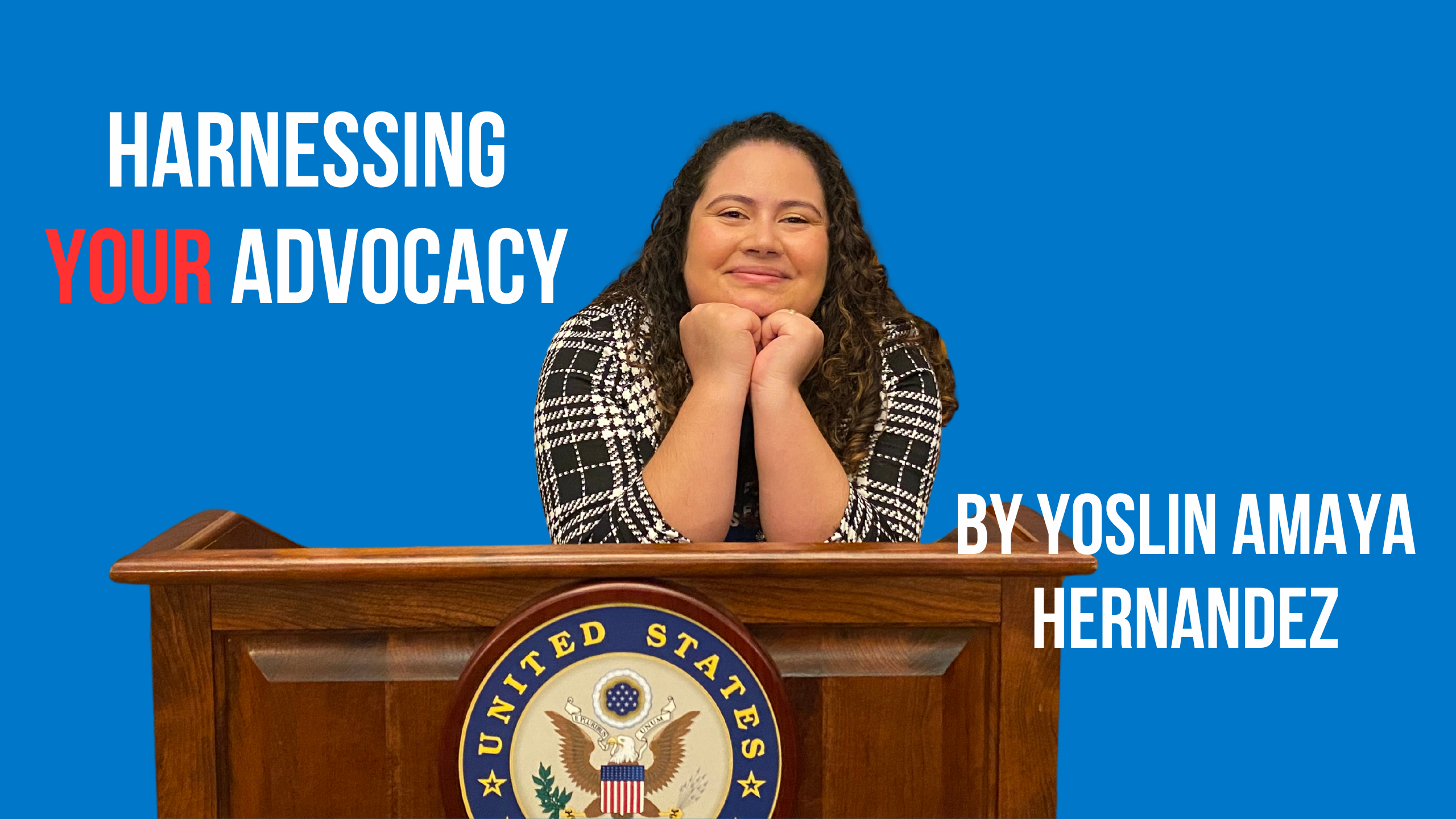

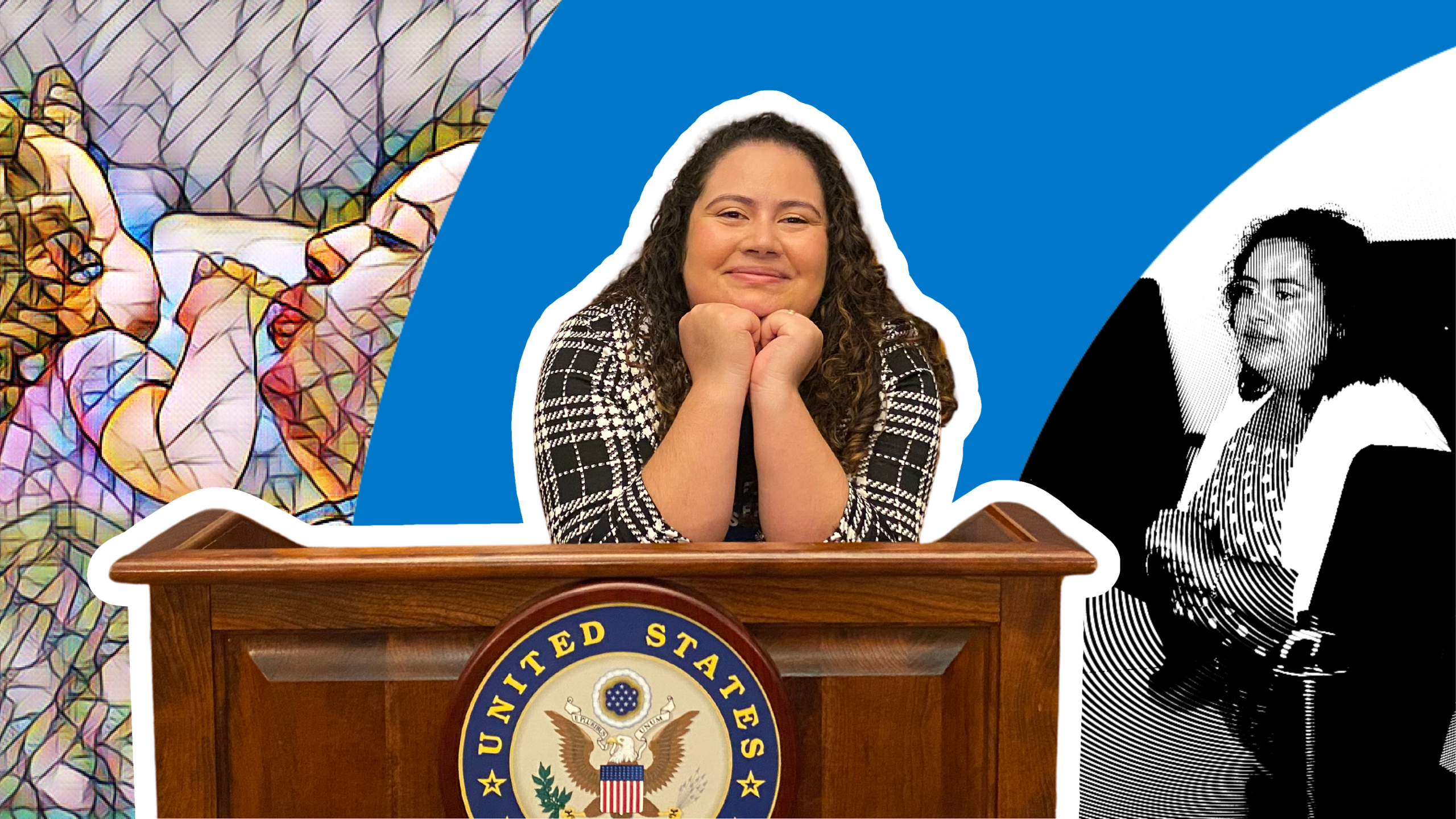
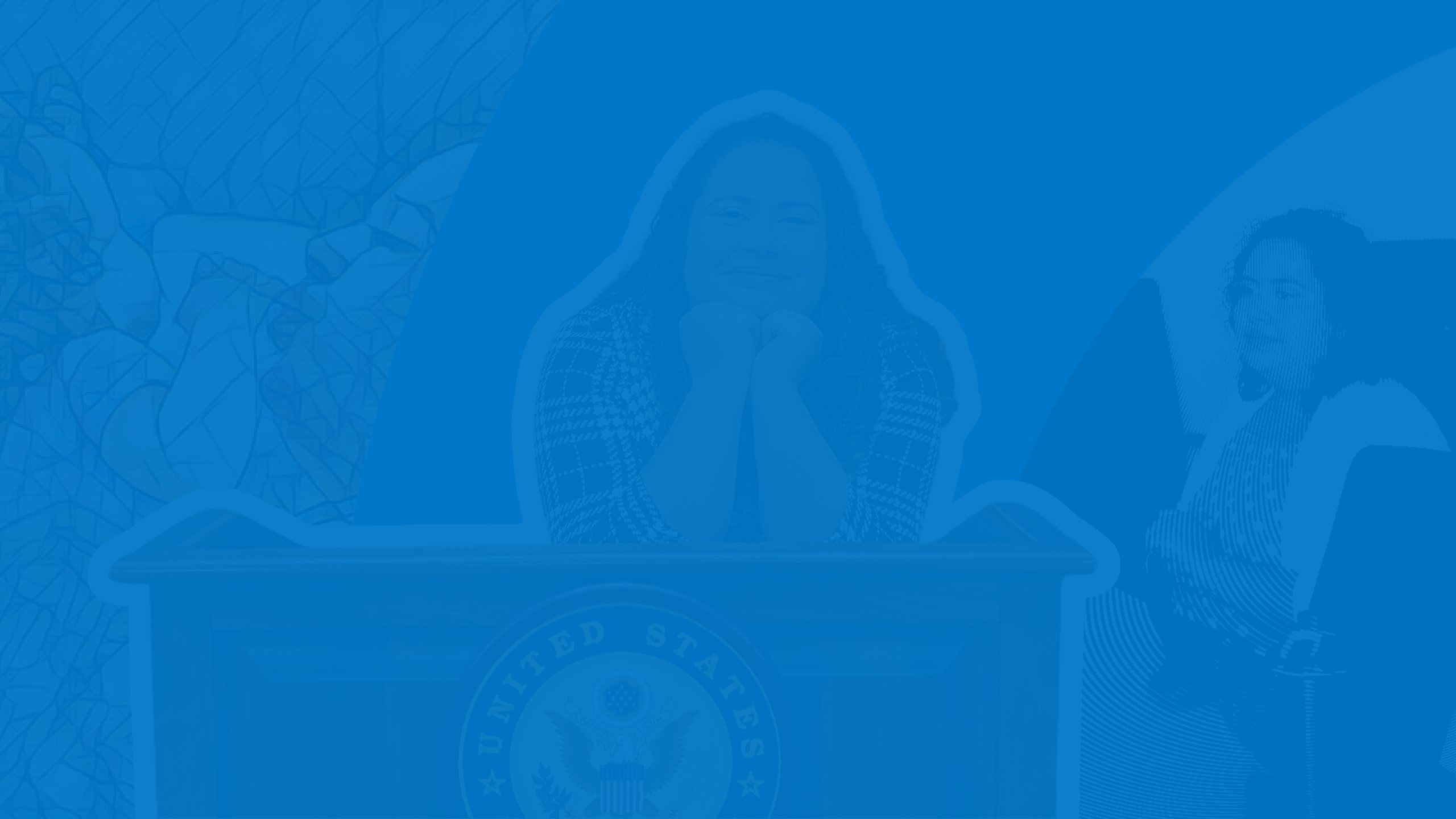
On the Rise:
Student Parent Leadership
Welcome to the first blog in Ascend's Student Parent Leadership series! Discover the advocacy and drive of Ascend Parent Advisors to our Postsecondary Success for Parents (PSP) initiative — and learn about their incredible work advancing the national student parent movement.
Yoslin Amaya Hernandez is currently the Student Advocacy Coordinator at Generation Hope and is an Ascend PSP Parent Advisor. A former teen parent and student parent, Yoslin understands firsthand the struggles of juggling college while also parenting. As a result of her lived experience, and support from Generation Hope and Ascend, she was able to advocate for herself and student parents across the nation through various engagements. She is excited to continue her advocacy efforts in her current role to make higher education more equitable for parenting students and other marginalized groups.
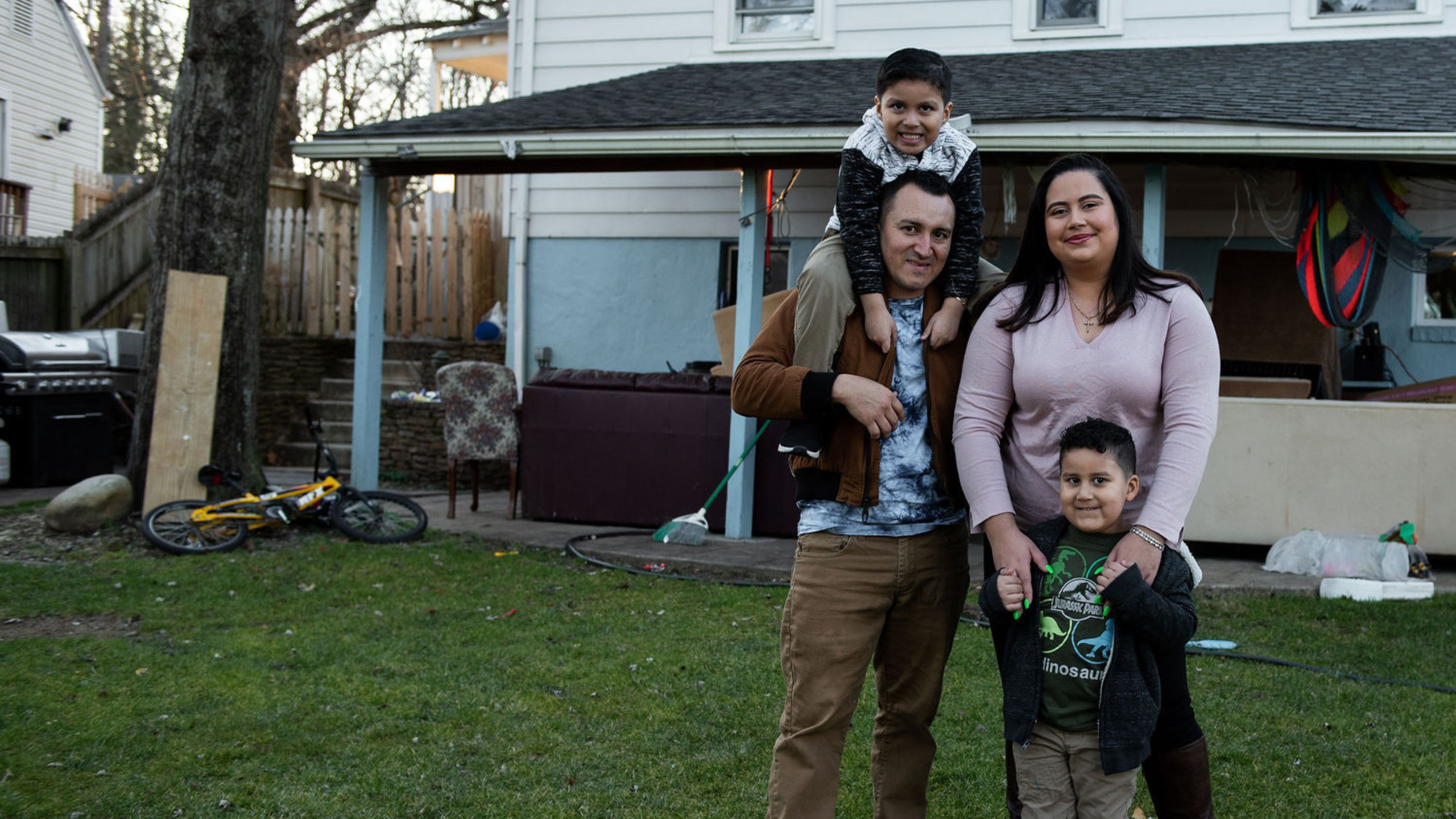
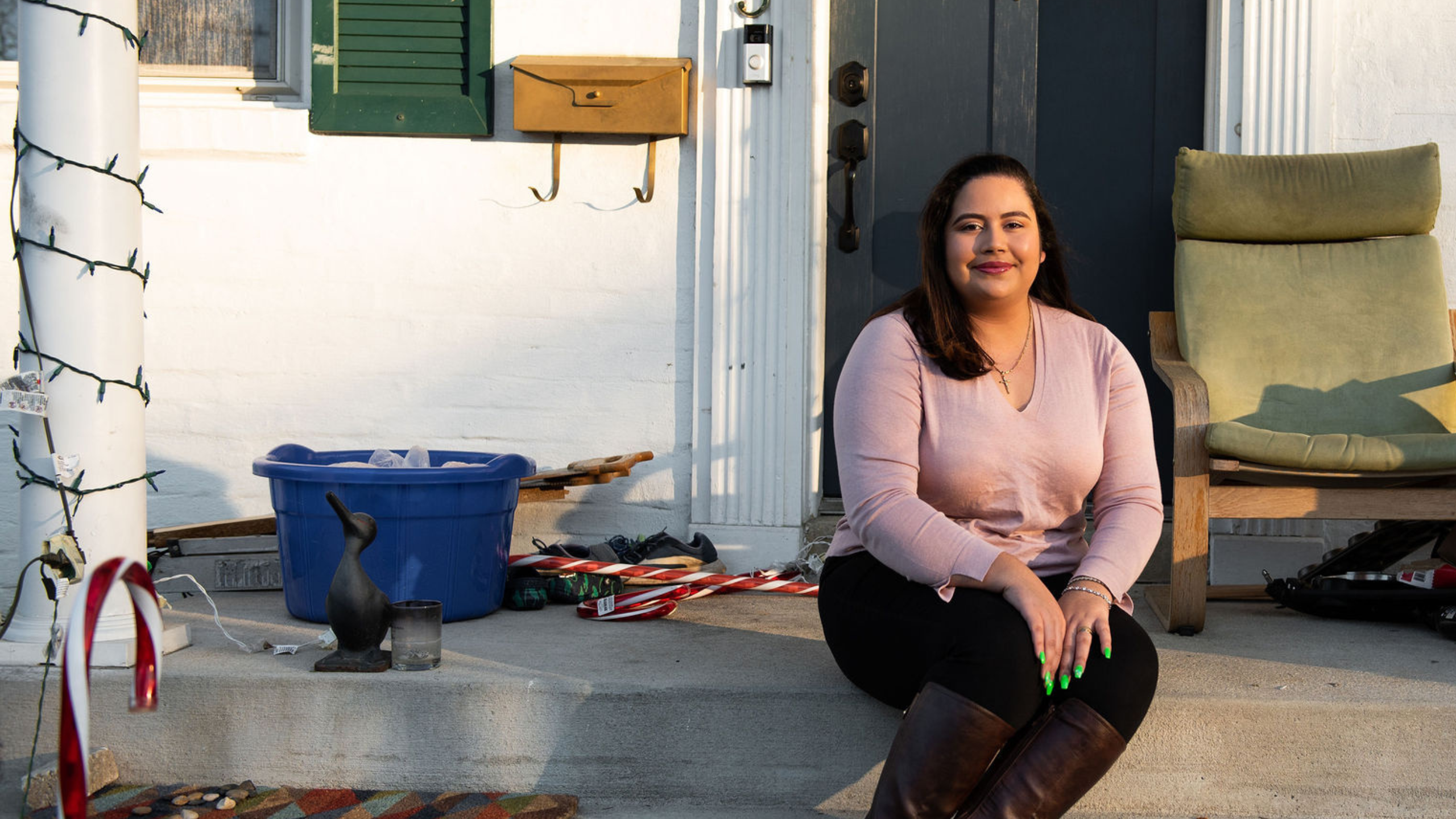
Student parents make up nearly 20% of today’s college students, but they are often overlooked – and in many ways invisible.
Parenting status is not asked, and assumptions are made about the types of supports student parents need. As a student parent myself I was always being offered the evening classes because it would allow me to work during the day, but there was no available, night-time childcare center that would allow me to join in on the evening classes. A solution was given, but it was not effective because it was based on what people in leadership positions thought was best for me, not on what I knew was best for me.
I have been provided a myriad of platforms to elevate the student parent experience, and I am grateful for all the skills I learned to self-advocate because it not only meant that I was advocating for myself, but for the nearly four million other student parents. As a former student parent, and now student parent advocate at Generation Hope, it was important for me to help make a change within my own state of Maryland. As a former staffer at the Maryland General Assembly, it was easy to know where to begin and who to go to, but it didn’t mean that the task itself to request state-wide data collection on parenting status was an easy feat.
Here’s how I approached my advocacy – and steps you can take to co-create effective solutions with student parents.
Center the Voices of Student Parents
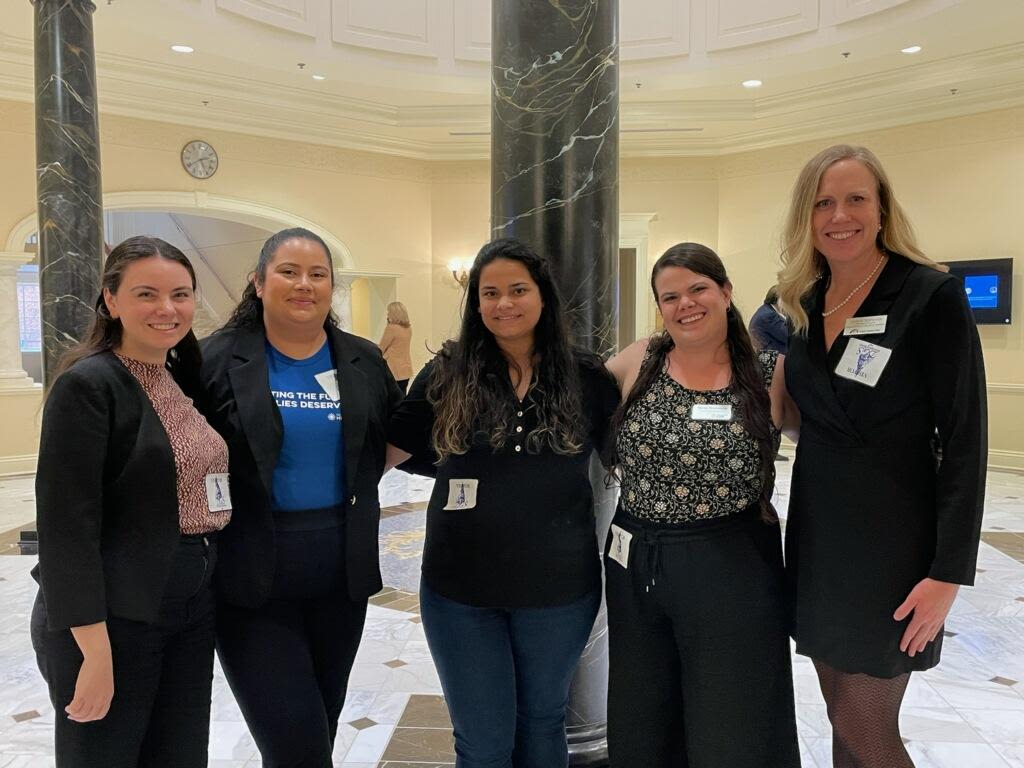
I first had to do research to know if there was already legislation being proposed or if there was already a mandate requesting this information. After finding that there was no information on this, I decided to connect with my former boss, Maryland State Delegate Jared Solomon, and his chief of staff to talk through what this could look like and if it was possible to do a legislative meeting with Generation Hope Scholars. This also meant gathering student parents to talk to him about the importance of recognizing their presence on campus, how a postsecondary degree could open new doors for themselves and their families, and why it mattered that they were counted in data collection.

(L-R) Josia Klein (National Women's Law Center), Yoslin, Tamara Sahin (student parent at Montgomery College and current Student Parent Advocacy Alliance member), Marlee Breakstone (Generation Hope), and Dr. Anne Hofmann (Maryland Student Parent Work Group).
(L-R) Josia Klein (National Women's Law Center), Yoslin, Tamara Sahin (student parent at Montgomery College and current Student Parent Advocacy Alliance member), Marlee Breakstone (Generation Hope), and Dr. Anne Hofmann (Maryland Student Parent Work Group).
I had two weeks to pull everything together, and as we know student parents are juggling a million things, so trying to get two student parents prepped and ready for an in-person legislative meeting seemed impossible. But rooted in my training at Generation Hope, and more importantly in my vision for my advocacy, was the certainty that it was imperative to uplift the experience of other student parents. Although I was a student parent myself, the student parent experience is not monolithic. It’s also important to always center the voices of those most impacted by structural and systemic barriers, and I am grateful for Generation Hope Scholars Brett and Julia who were willing to share their stories and what this legislation would mean to them.
Leverage Connections to Champion Your Cause
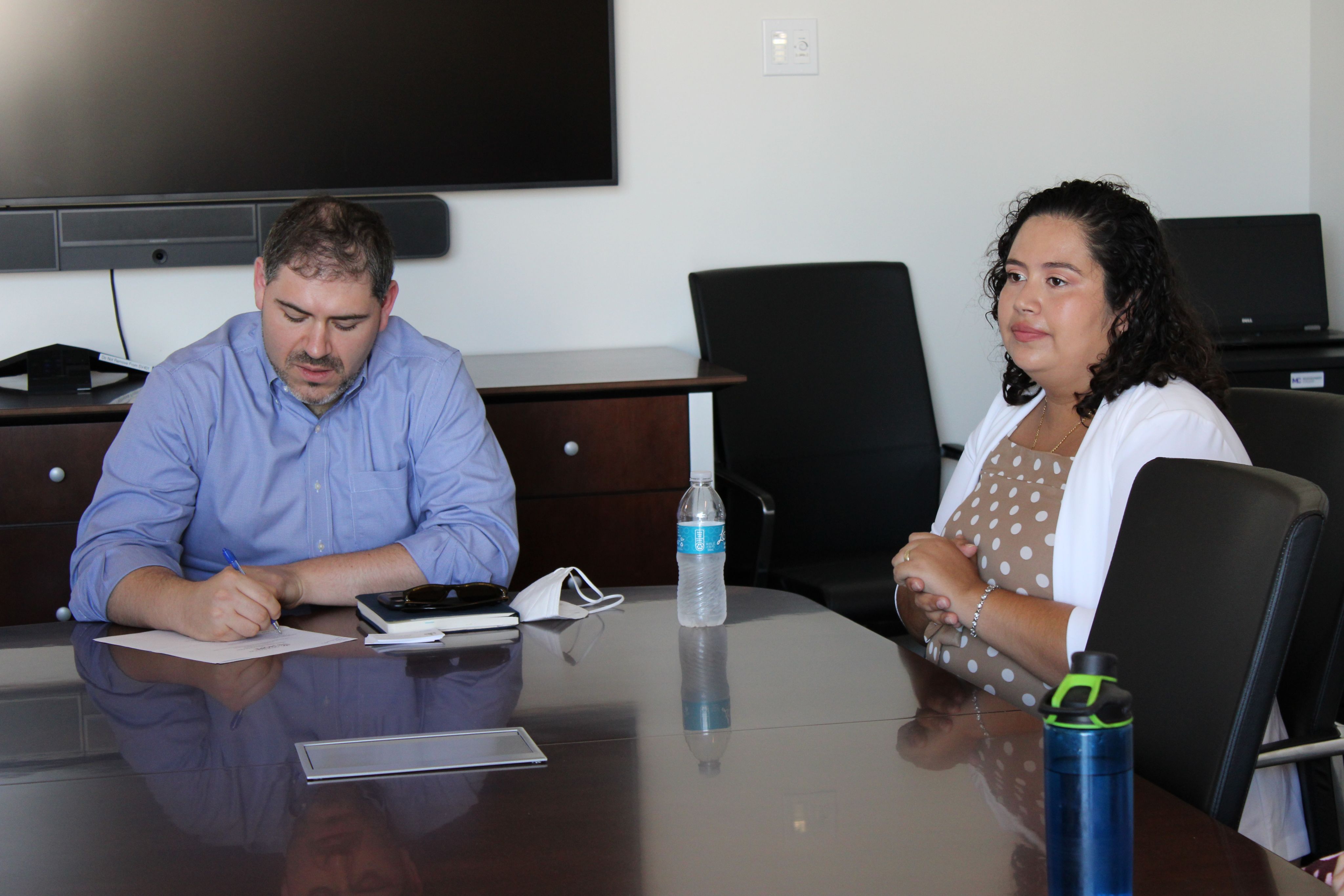
Legislation doesn’t always pass the first time around, but thanks to Delegate Jared Solomon, making strides for initial data collection was possible through budget language.
Policymaking is hard, but it’s easier to do when you can leverage your connections and know that you have a champion who you can work with.
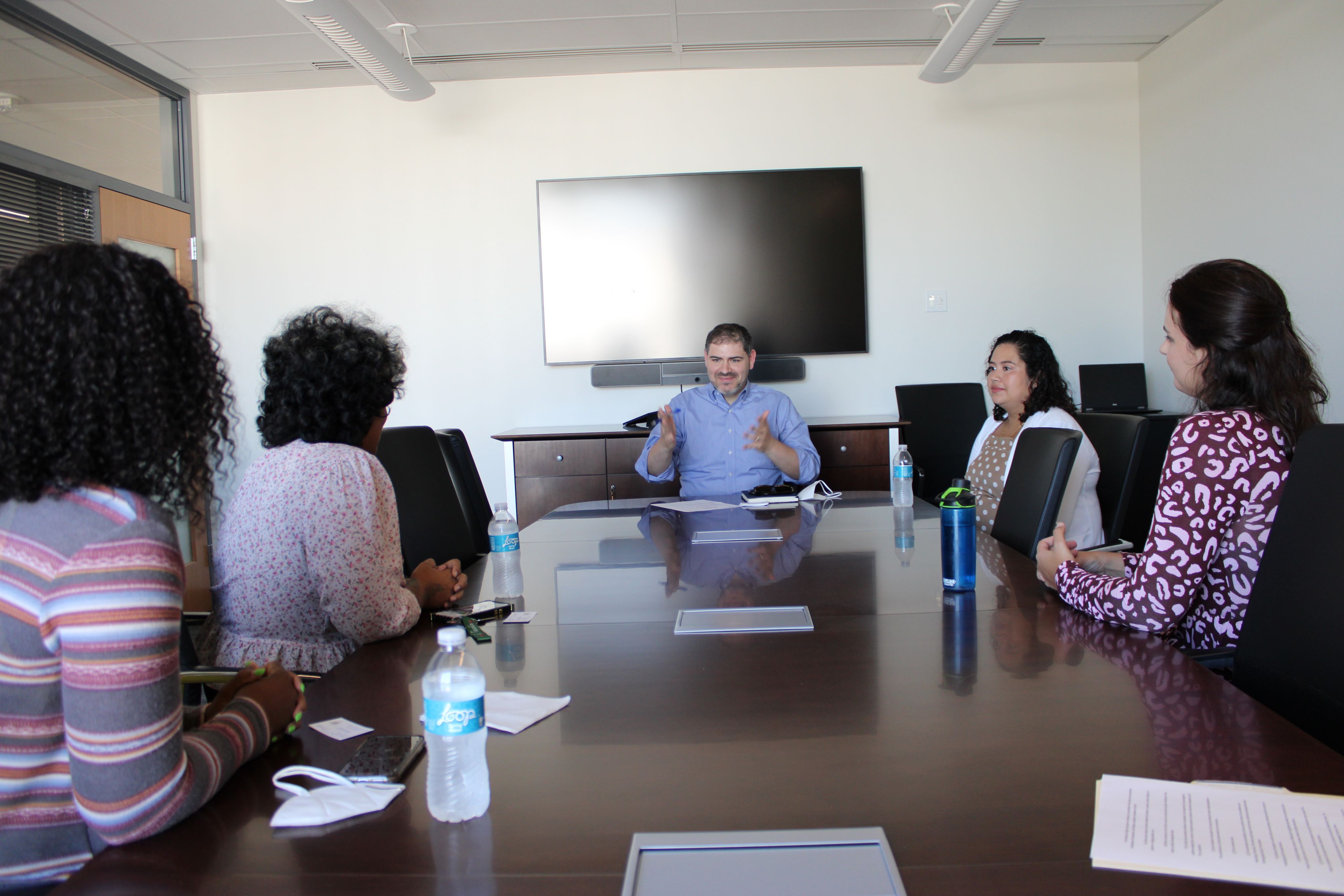
Attending a meeting on the student parent data collection bill with Delegate Solomon.
Attending a meeting on the student parent data collection bill with Delegate Solomon.
We knew that requesting a bill would be a difficult task, but Delegate Solomon’s dedication to the equity and accessibility of higher education allowed us to request an initial report through Maryland’s 2023 fiscal year budget.
The report revealed what I assumed to be true: not many institutions in Maryland are collecting data on student parents, and those that are don’t have a full picture. I knew this would be the case because as a former student parent, nobody asked me if I was a parent while in school.
A look at our team of advocates.
I'm Yoslin Amaya Hernandez, and I'm a mother of three, former student parent, and current Student Advocacy Coordinator at Generation Hope.
Maryland State Delegate Jared Solomon (Democrat, District 18, Montgomery County) has been a Member of House Delegates since 2019 and Deputy Speaker Pro Tem since 2023.
Brett Renfrew is a former Generation Hope Scholar. Brett is a single mother with a son and a former student parent.
Julia Calvina Essome is a Generation Hope Scholar. Julia is a current student parent attending Towson University.
Advocate for Lasting Change - and Be Persistent
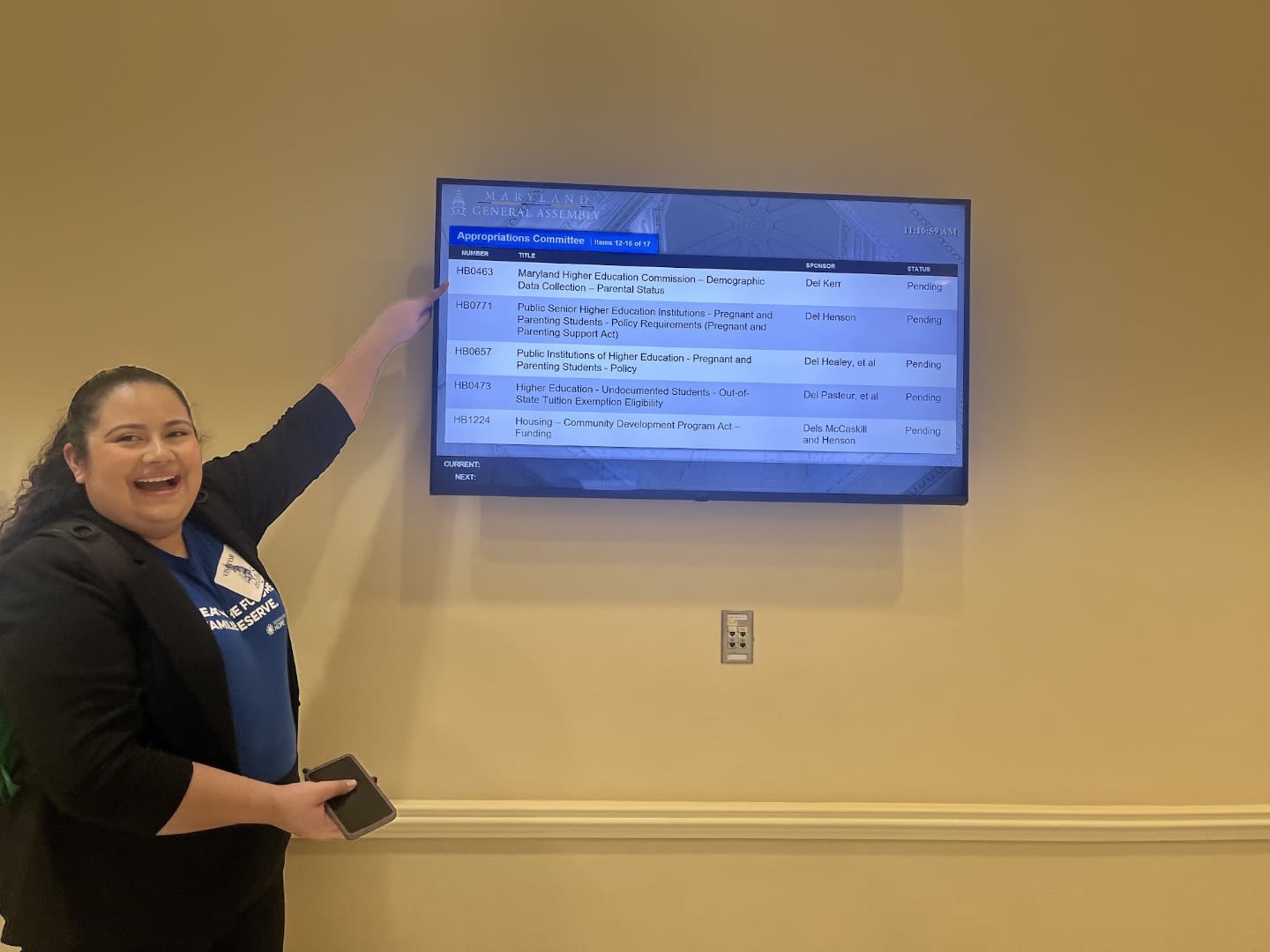
It may seem like it was too much of an effort to request a single report that would only be effective for a single year, but advocacy and policymaking are not linear. The report raised awareness of student parents and their experiences to members of the Maryland Higher Education Commission (MHEC), provided recommendations on how to best support this population, and sparked further conversations that continued to advance the student parent movement forward in Maryland.
While a single report may seem like it cannot create a huge change, it actually allowed for me and the Maryland Student Parent Work Group (a coalition of policy professionals, researchers, technical assistance providers, higher education leaders from two and four-year institutions and an HBCU), to push for a permanent student parent data collection bill. The Maryland Student Parent Work Group brought together a myriad of perspectives of folks from different backgrounds to discuss what implementation could look like for this bill. It was important to hear from student parents, but it was also important to hear from higher education professionals, policy professionals, and researchers who are doing this work every day. This allowed us to make informed decisions on the language for the bill and provided us with support for the bill hearing later down the line.
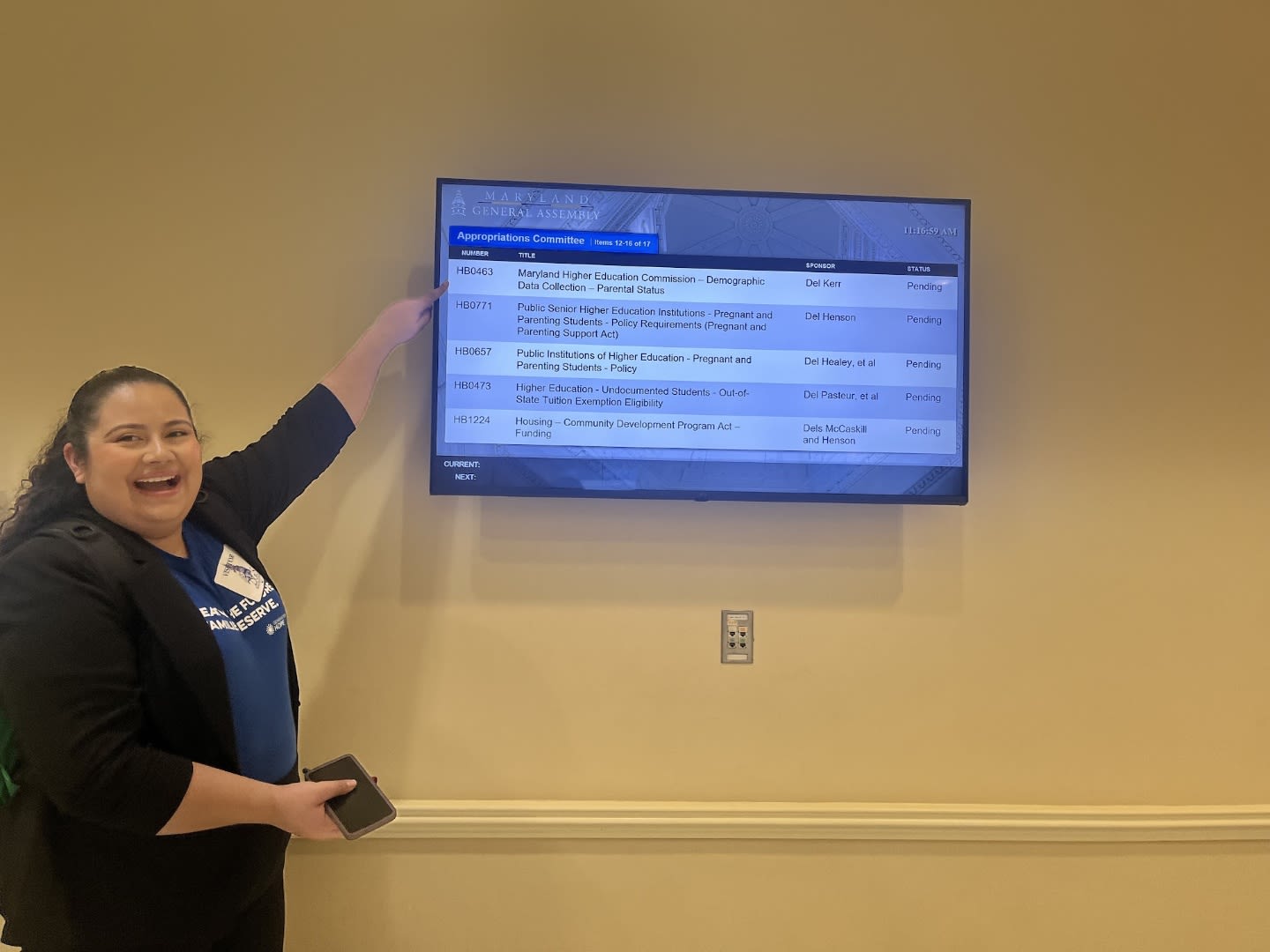
Excited to see the scheduled hearing for the student parent data collection bill!
Excited to see the scheduled hearing for the student parent data collection bill!
Our Senior Policy Manager, Marlee Breakstone, connected me with the group in June and I discussed the findings of the report for which I’d advocated, lending my expertise to move the data collection bill forward. Having previously worked in the Maryland General Assembly for nearly two years, I had the knowledge and a connection to help make this a reality. Within three months of joining the coalition, I coordinated a virtual legislative meeting with Delegate Solomon and Dr. Anne Hoffman, a member of the Maryland Student Parent Work Group, inviting Delegates Ken Kerr and Kris Fair to discuss the introduction of this vital piece of legislation.
In November 2023, Delegate Solomon sent the language to Maryland’s Legislative Services so that an official bill could be drafted. Delegate Kerr officially introduced the Maryland House Bill (HB) 0463 on January 22, 2024. Again, leaning into the connections you have and finding a champion – or champions! – that believes in your cause can make policymaking a little less intimidating.
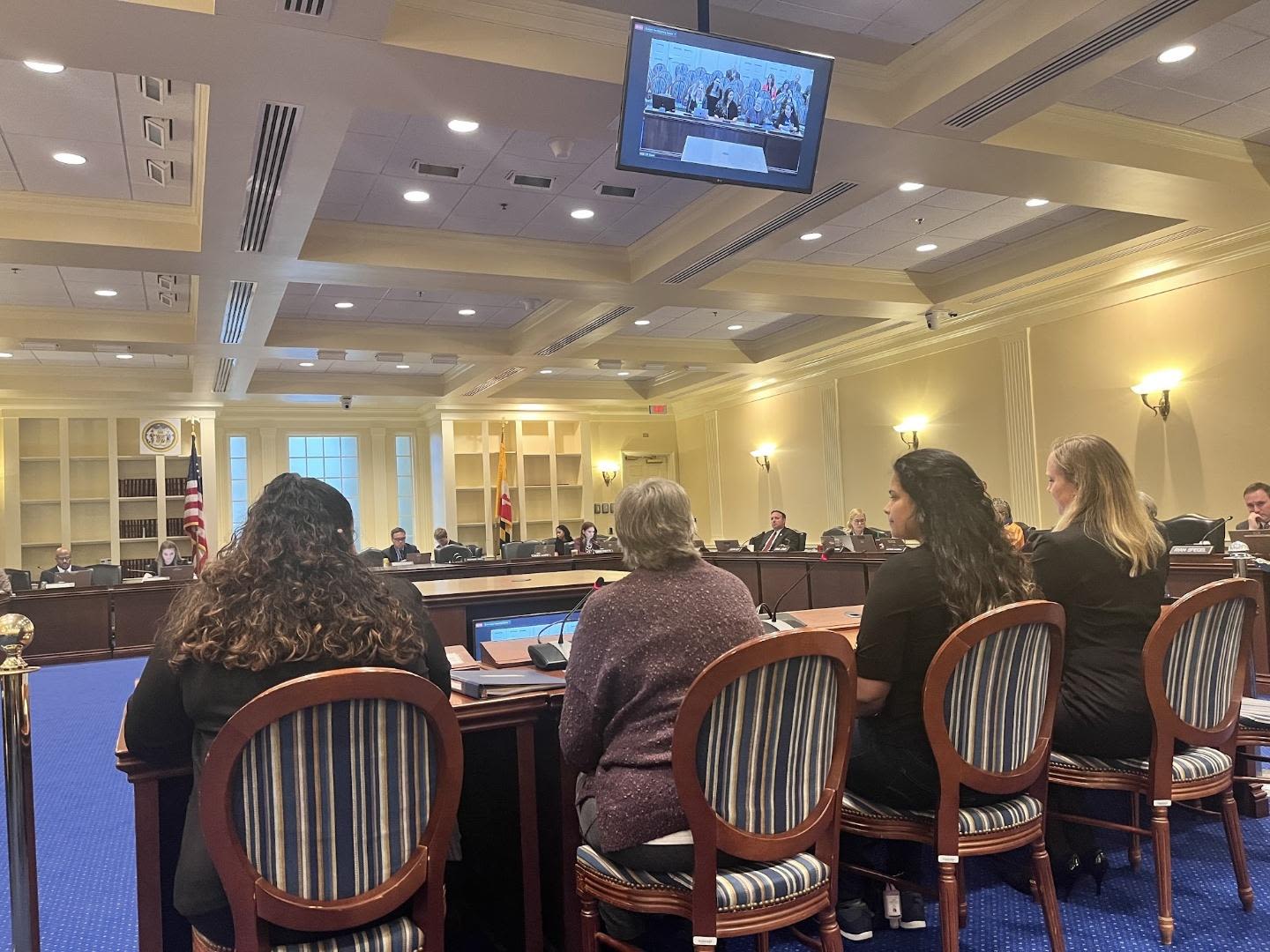
Testifying in support of the Maryland student parent data collection bill!
Testifying in support of the Maryland student parent data collection bill!
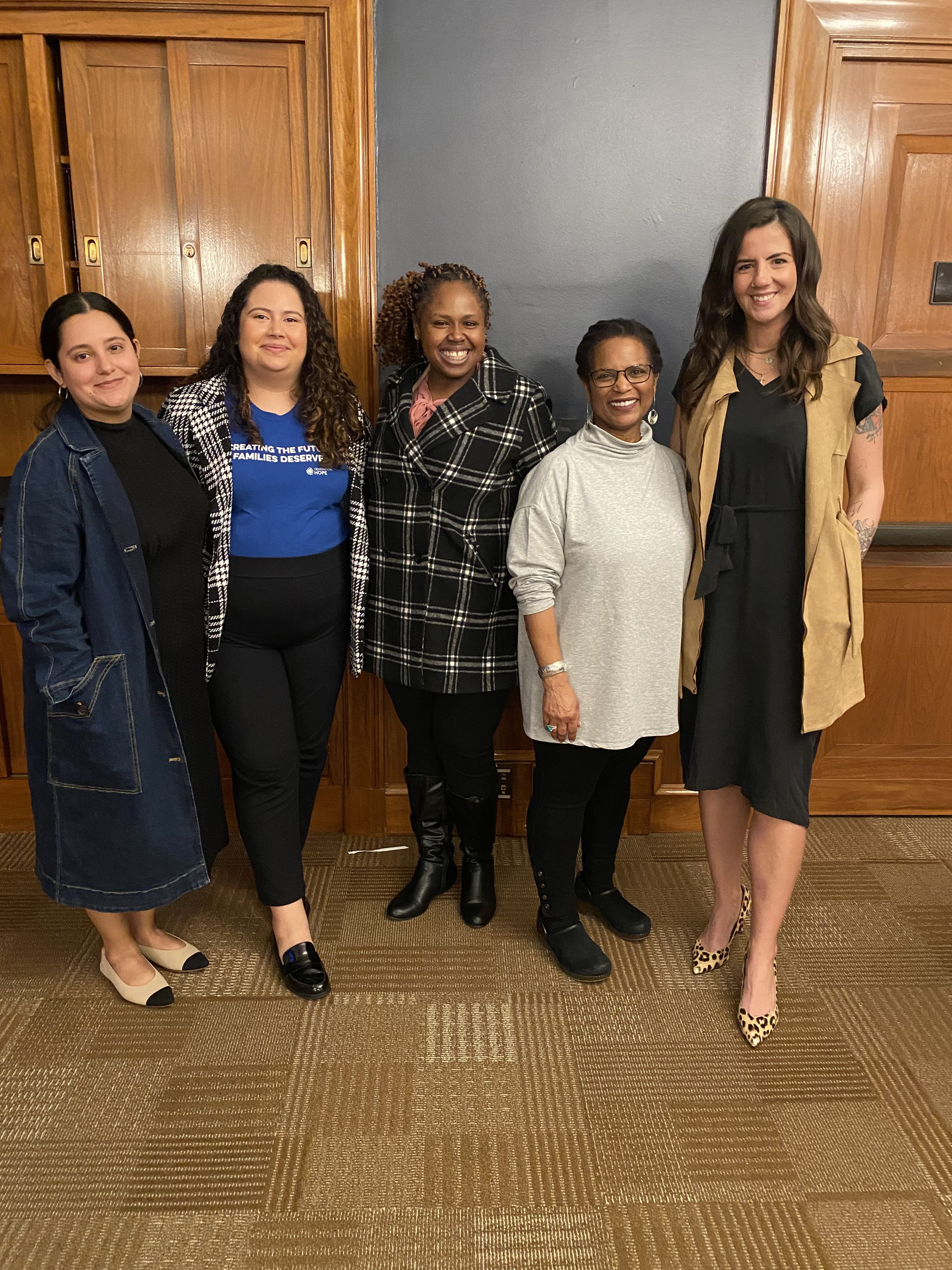
An evening reception at Capitol Hill after a long day of advocating for student parents! (L-R) Kathy Lugo (Ascend), Yoslin, Da'Shon Carr (New America), Marjorie Sims (Ascend), and Amber Angel (ECMC Foundation).
An evening reception at Capitol Hill after a long day of advocating for student parents! (L-R) Kathy Lugo (Ascend), Yoslin, Da'Shon Carr (New America), Marjorie Sims (Ascend), and Amber Angel (ECMC Foundation).
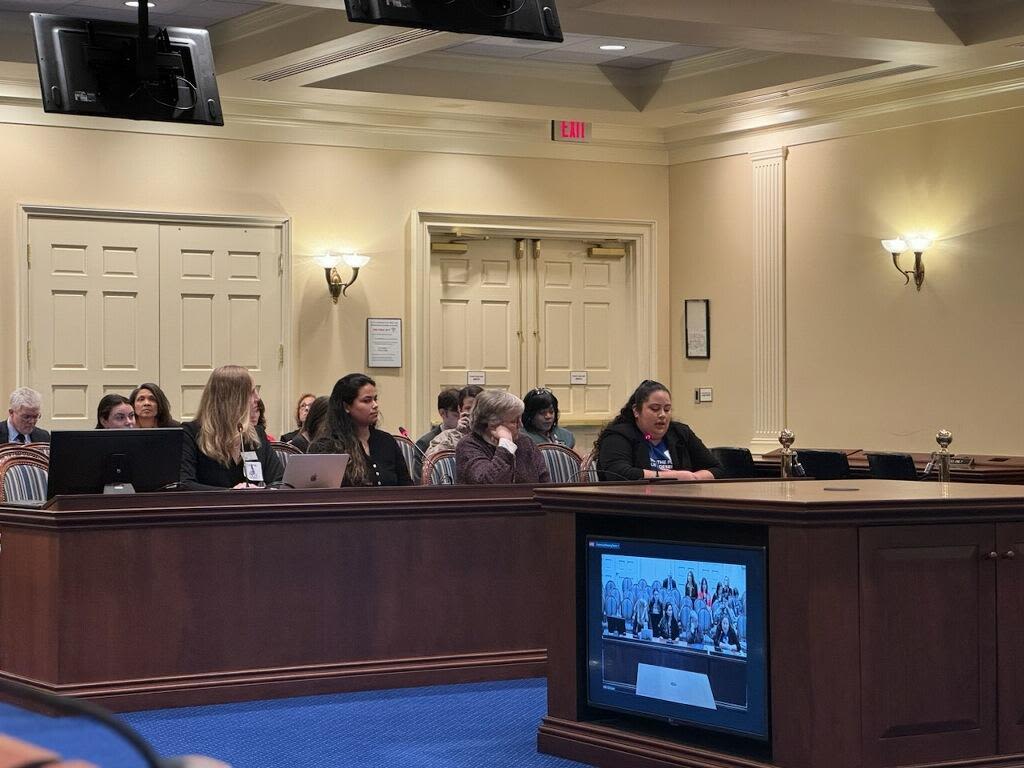
I'm also extremely grateful to Generation Hope Scholar Tamara Sahin for coming down to Annapolis in February and joining me in testifying on this bill on behalf of all student parents!
Watch our full testimony:
Although our bill did not pass this session, I am grateful for how far we came and am looking forward to working with this group of champions to re-introduce the bill next session.
Advocacy can be hard, but knowing that I do it to ensure that other student parents feel seen, heard, valued, and supported is important. Even as I was advocating for the data collection bill, I also had to advocate to be respected as a professional with lived and subject matter expertise. I encountered significant challenges when my leadership and hard work to obtain the initial report were left uncredited, and I felt it undermined the significant efforts I had made. Recognizing the importance of acknowledging the work of student parents, I continued to be an advocate (this time for myself) to ensure that credit was given where it was due. This experience reinforced my commitment to fostering a culture of respect for the valuable contributions and leadership of student parents in all endeavors. Knowing that my persistence will make a tangible change for others is worth the fight.
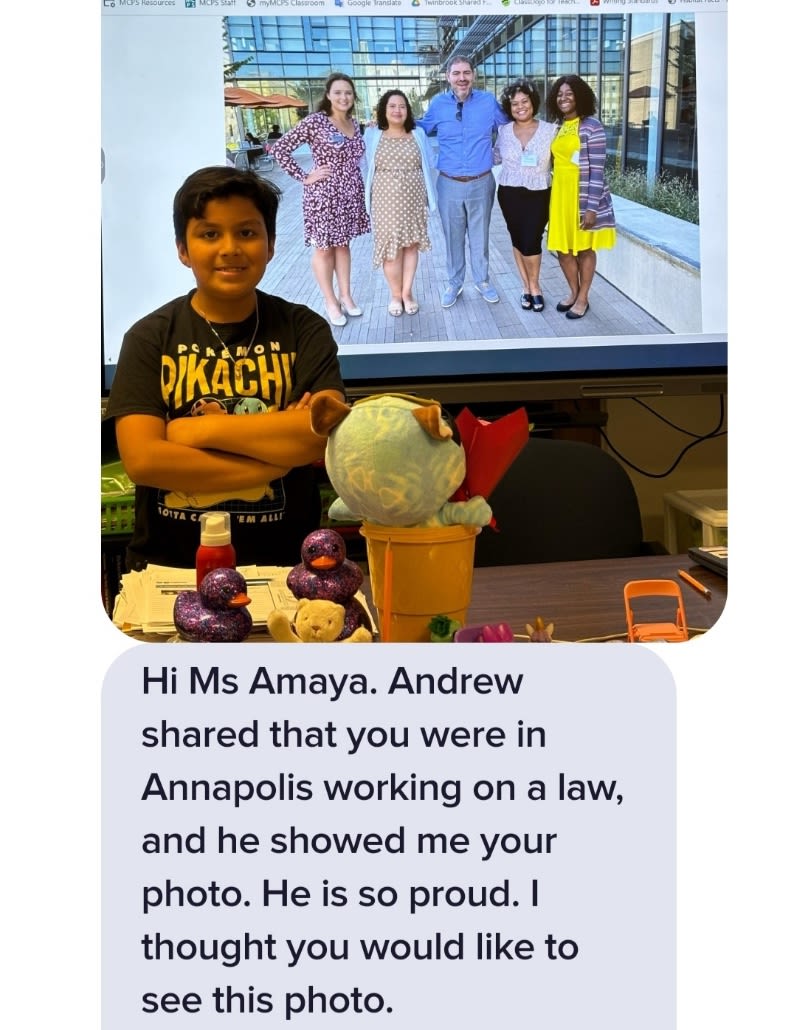
I know that my advocacy is making a difference for others, and I'm proud to inspire my children!
I know that my advocacy is making a difference for others, and I'm proud to inspire my children!
This experience has continued to inspire me, and with trust and support from Generation Hope, I now lead our newly-launched Student Parent Advocacy Alliance (SPAA). The SPAA is an initiative that will provide student parents across the country the opportunity to gain new skills in their advocacy, storytelling, and leadership. I get to harness the advocacy skills I’ve developed and train a new generation of student parents to advocate for the solutions that will best meet their own needs.
For me, this brings my advocacy experience full circle and reinforces that even when you believe you are alone, take comfort in knowing that there is a champion somewhere in your corner. Find them and march through the doors to make a change.
You may never know the impact you can have if you don’t try.
